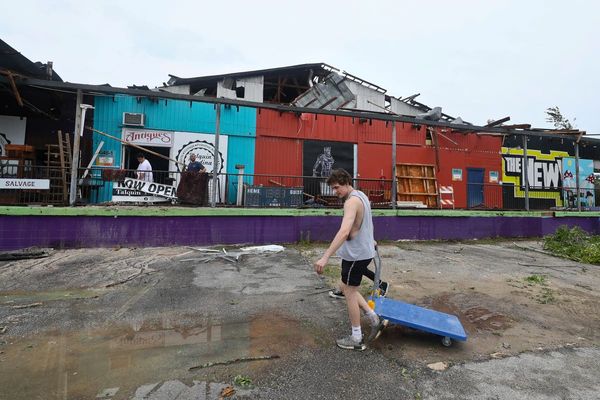Wiradjuri woman Brenda Matthews considers herself part of the Stolen Generations — but from a legal perspective, she is not.
Ms Matthews was removed from her Aboriginal parents at the age of two in 1973, four years after the Aborigines Protection Act was repealed in New South Wales.
It means she and her six siblings are not entitled to compensation or recognition as their removal falls outside the legal definition.
"That's like, your identity is taken away from you again," Ms Matthews said.
"Who am I in this space? No one seems to want to take responsibility."
Ms Matthews and her siblings were spread across foster families and institutions, while her parents fought for them all to be returned.
Five years later, Ms Matthews was returned.
But fragmented memories of a little white sister left her torn between two worlds.
Search for identity
Ms Matthews's search for answers led her to an emotional reunion with her white foster parents, Mac and Connie Ockers, 40 years later.
"They're amazing, they are just such a loving couple," Ms Matthews said.
"They just wanted to share that with another child and they wanted to give that love."
The Ockers were lied to by authorities about Ms Matthews's treatment by her Aboriginal parents.
The toddler was handed to them without any paperwork on the outskirts of Sydney and they were told she had been neglected.
But it was not the truth.
"We thought we were the heroes but we ended up being the villains," Mr Ockers said in The Last Daughter, a new film telling Ms Matthews's story set to be released nationally in June.
Healing journey
Now living on the Gold Coast in Bundjalung country, Ms Matthews co-directed the film capturing her quest for identity and healing.
"'I'm hoping that [the audience] can come on a healing journey with me, " she said.
"That we can start reflecting on ourselves and contributing to helping start the healing in this country, the wound that's in this nation."
The film brings Ms Matthews's foster parents and Aboriginal mother together in a personal act of reconciliation.
"For my mother to have the courage to even say yes, I'll meet up with them, she's a strong woman," Ms Matthews said.
In the film her mother, known as Nana Brenda, explained she never gave up on having her children returned.
"I had seven children and the whole seven of them were taken," Nana Brenda said.
"But we knew in our hearts that we'd get them back."
Truth-telling process
Indigenous rights activist and distinguished professor at the University of Technology in Sydney, Larissa Behrendt, mentored Ms Matthews throughout the filming process.
Professor Behrendt, who is also the host of Speaking Out on ABC RN, said there were countless similar cases who were not legally considered to be part of the Stolen Generations.
"That's a construct from outside the First Nations community that says, 'This is when the Stolen Generations end'," Professor Behrendt said.
"[It] does not reflect the First Nations experience or the reality for First Nations people.
"There were continuous removals of children."
Professor Behrendt said the film The Last Daughter formed part of the truth-telling process sorely needed in Australia.
"People who think that the Stolen Generations is something that ended just because the formal policy finished and governments have a definition on Stolen Generations need to hear these stories," she said.
"People who think that reparations shouldn't be an issue for First Nations people need to hear these stories.
"People who think this was a thing of the past need to hear these stories."







